Troubled Water
By Stephen Wilson
Fifth-grade students from Cheston Elementary use a salt shaker to sprinkle the roads on a plastic rural model and cover the roadways with dirt while Lafayette engineering students explain natural processes that impact our water supply.
College students then hand spray bottles to the fifth-graders and ask them to make it rain. They spray until the water slowly begins to flow, picking up the dirt and salts and pooling in the model’s low-lying areas.
While that’s happening, groups of students are working at other tables, listening to lessons from college students while coloring, mixing, and stirring dirt into beakers, and handling turbidimeters that measure the amount of non-dissolved soils in the water or conductivity probes that measure the dissolved solids in the water.
The hands-on approach makes learning fun and meaningful.
Today’s lessons are on the water cycle and pollution as part of the Aspirations program from Landis Center for Community Engagement. Lafayette faculty, Cheston teachers, and both Lafayette and Cheston students work together through cooperatively developed classroom-oriented learning modules. Cheston Elementary is one of two United Way Community Schools in Easton, which help level the playing field for schools where students face more barriers to success.
Here are some images and quotes from the day.
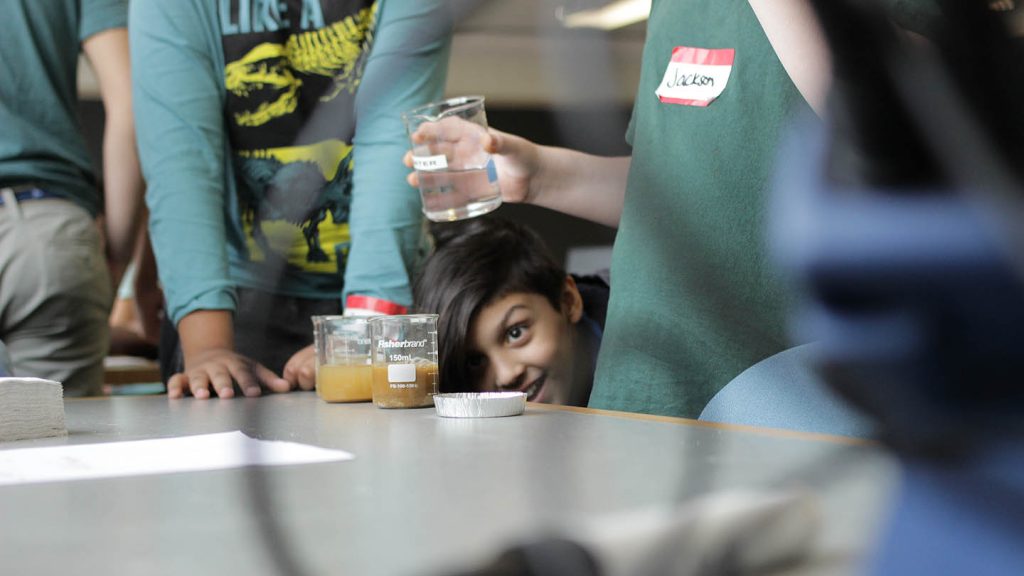 I remember when I was in fifth grade and got a chance to visit the high school in my town; I was awestruck by these awesome older kids doing all these crazy things. I imagine that the kids who visited us felt much the same way, possibly even more so, and thus, it is very important that the day be a positive experience for the students as it is something they will remember for a long time.
I remember when I was in fifth grade and got a chance to visit the high school in my town; I was awestruck by these awesome older kids doing all these crazy things. I imagine that the kids who visited us felt much the same way, possibly even more so, and thus, it is very important that the day be a positive experience for the students as it is something they will remember for a long time.
–Brian Pinke ’19
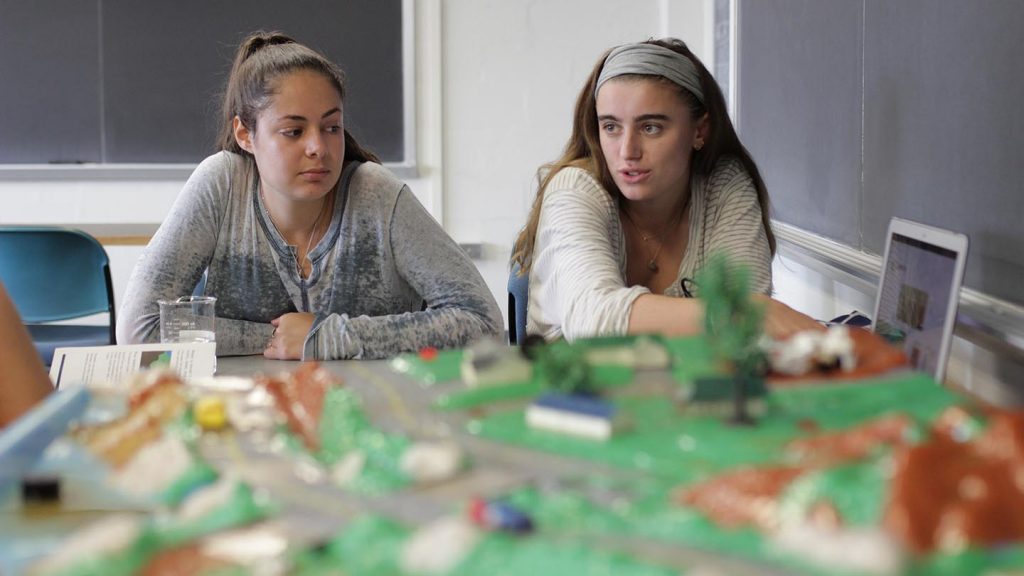 It’s great to show young children that they can aspire to high positions of education, because education should be accessible to anyone no matter the level. It is also great for college students to make an impact in their community not only as preparation for post-college work but also so they can understand their impact on individuals whether it’s their boss or a fifth-grader. My favorite part was seeing how enthusiastic the students were to be learning from us, because younger generations are the future, and it makes me so happy to see that they’re interested in staying educated.
It’s great to show young children that they can aspire to high positions of education, because education should be accessible to anyone no matter the level. It is also great for college students to make an impact in their community not only as preparation for post-college work but also so they can understand their impact on individuals whether it’s their boss or a fifth-grader. My favorite part was seeing how enthusiastic the students were to be learning from us, because younger generations are the future, and it makes me so happy to see that they’re interested in staying educated.
–Andrea Bugyis ’21
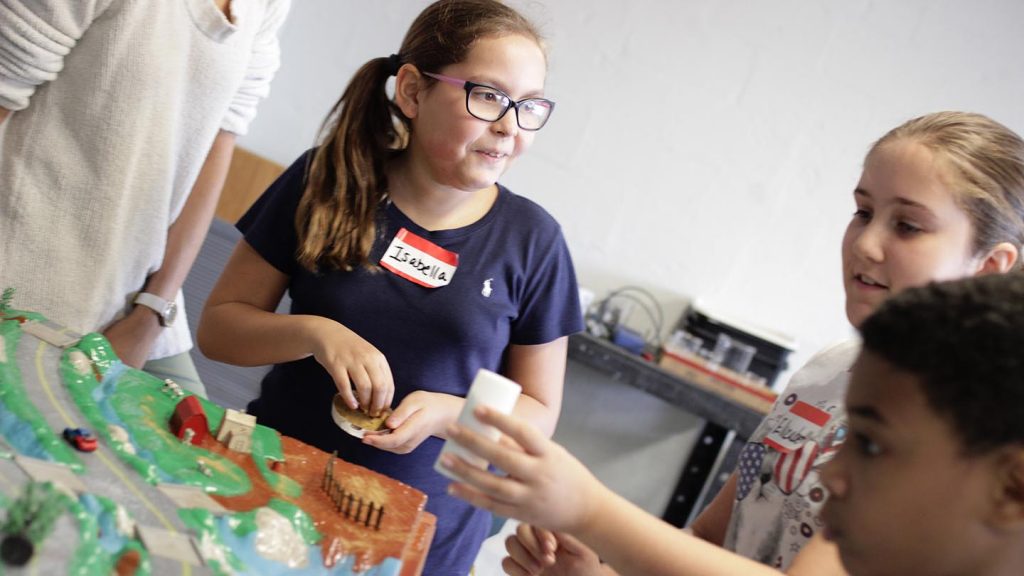 In order to prepare for this project, our group had multiple meetings to develop our lesson. The first meeting involved organizing the topics that we wanted to cover and developing a very basic lesson plan. The next few meetings involved brainstorming different ways to get our information across to the kids. These ideas would not only need to be easy to understand but also engaging. This was probably the most difficult part of the entire project. We really had to be creative in our presentation to the children.
In order to prepare for this project, our group had multiple meetings to develop our lesson. The first meeting involved organizing the topics that we wanted to cover and developing a very basic lesson plan. The next few meetings involved brainstorming different ways to get our information across to the kids. These ideas would not only need to be easy to understand but also engaging. This was probably the most difficult part of the entire project. We really had to be creative in our presentation to the children.
–Katie Ullmann ’21
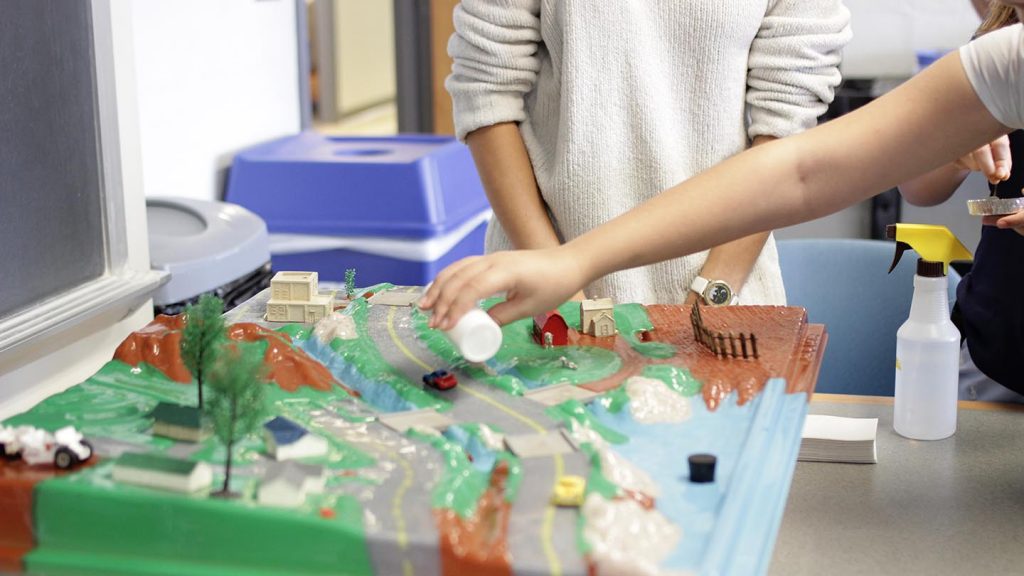 I was able to directly teach something important to young kids and indirectly teach them about a college education. I hope that after this community engagement day the students in my group understand the importance of water quality in their community. More importantly I hope that they have thought more about their goals for the future and something that they might like to do later in their lives.
I was able to directly teach something important to young kids and indirectly teach them about a college education. I hope that after this community engagement day the students in my group understand the importance of water quality in their community. More importantly I hope that they have thought more about their goals for the future and something that they might like to do later in their lives.
–Sarah Hawtof ’21
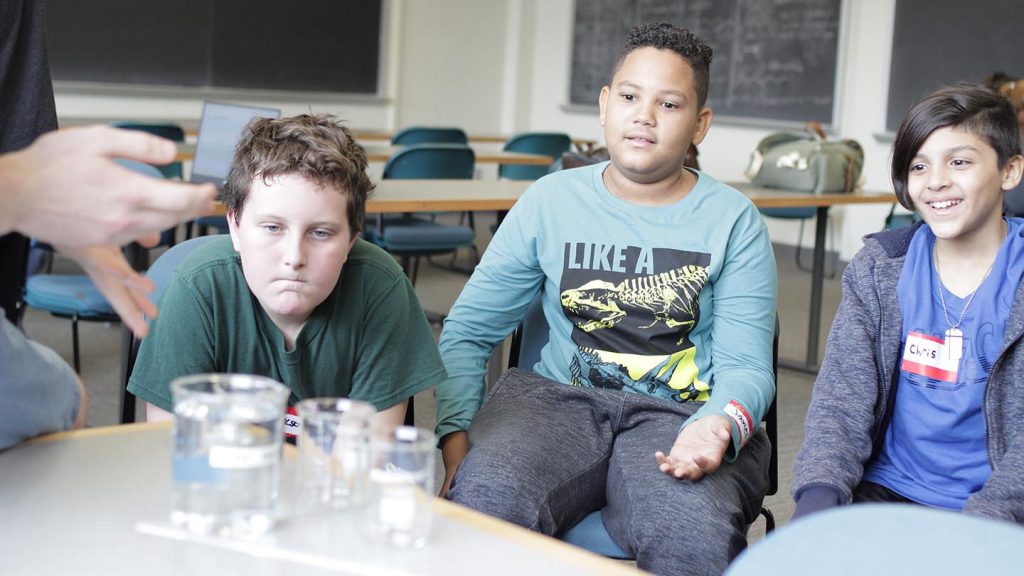 Working with kids in communities like Easton is important. It is important to get them excited about going to college from a young age and introduce them to all of the possibilities they have waiting for them.
Working with kids in communities like Easton is important. It is important to get them excited about going to college from a young age and introduce them to all of the possibilities they have waiting for them.
–Emi Avtalion ’21
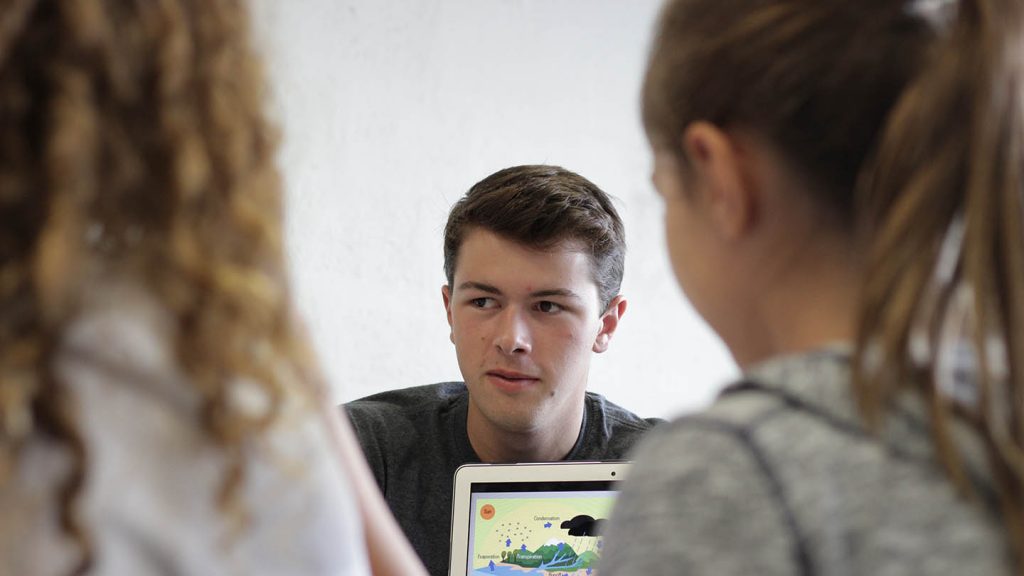 It’s important to become engaged with local youth for many reasons. For one, it gives young learners a sneak peek of what their future may hold. The students know that if they work hard and stick to their goals, Lafayette College and like universities are within their reach.
It’s important to become engaged with local youth for many reasons. For one, it gives young learners a sneak peek of what their future may hold. The students know that if they work hard and stick to their goals, Lafayette College and like universities are within their reach.
–Isabel Gleckner ’21
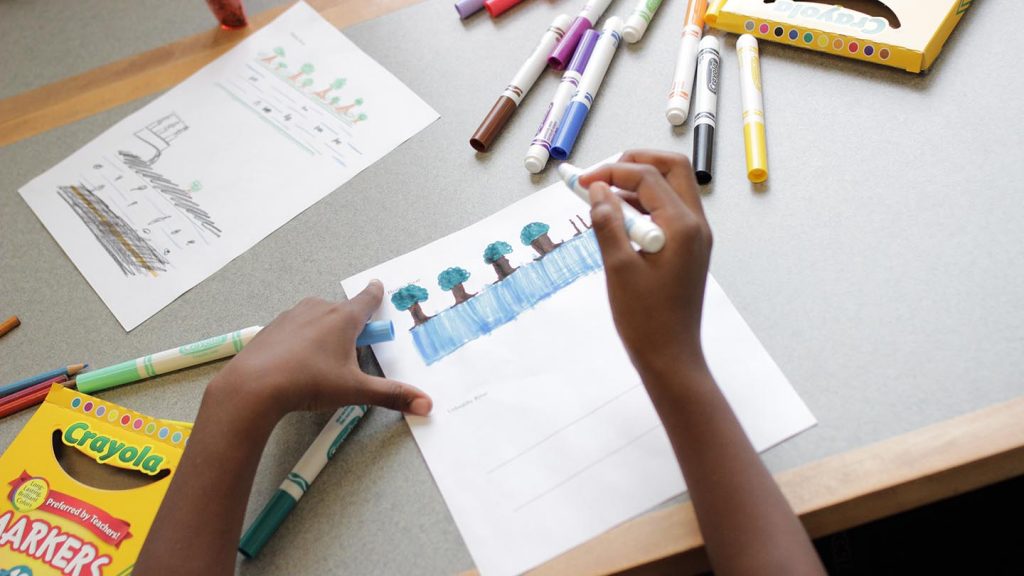 My group spent a great deal of time preparing a lesson plan that we felt the students would be engaged in and that they would enjoy. We were able to stick to the plan that we developed in the weeks leading up to the presentation pretty well. The only thing that we had to do was wrap up a little quicker than we had planned, due to the extra time that the hands-on experiments took because the students were very interested in them.
My group spent a great deal of time preparing a lesson plan that we felt the students would be engaged in and that they would enjoy. We were able to stick to the plan that we developed in the weeks leading up to the presentation pretty well. The only thing that we had to do was wrap up a little quicker than we had planned, due to the extra time that the hands-on experiments took because the students were very interested in them.
–Patrick Halpin ’21
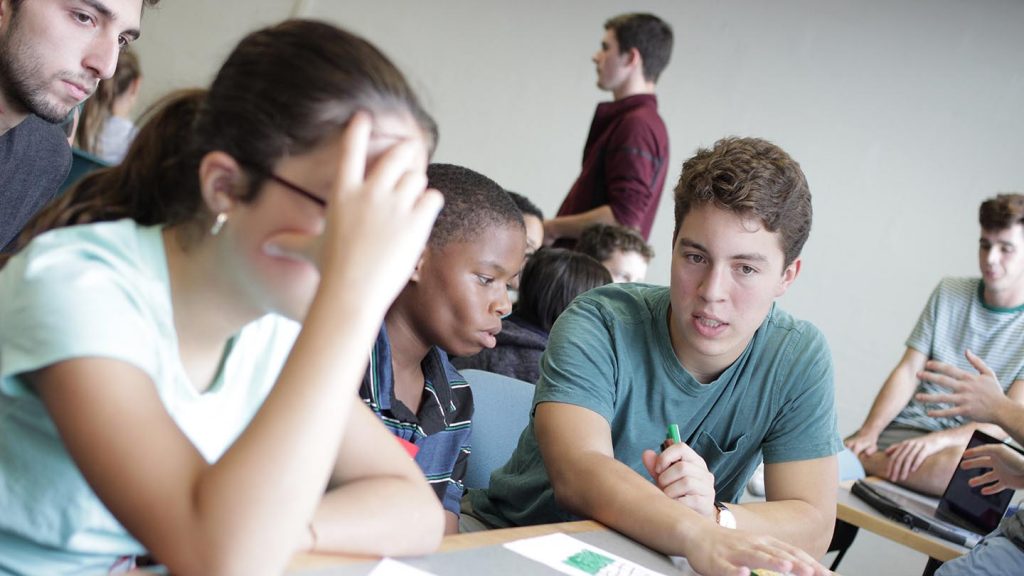 Days like this give the fifth-graders a brief glimpse of what their future might be like if they decide to go to college, and it gives the College students the opportunity to give something back to the community. This helps build a stronger relationship between the College and the community.
Days like this give the fifth-graders a brief glimpse of what their future might be like if they decide to go to college, and it gives the College students the opportunity to give something back to the community. This helps build a stronger relationship between the College and the community.
–Eric Hunstein ’21
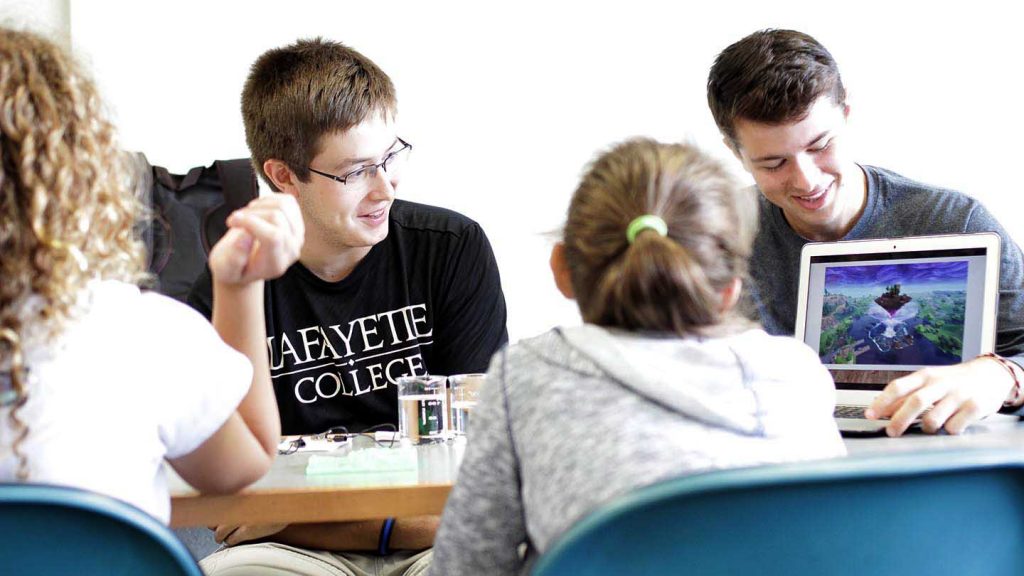 My group and I loved presenting in front of the kids and tried our best to make it fun for them. School trips should be entertaining, so my group created a lesson that had a lot of hands-on components and mini games within how we taught. The kids reacted very well to our teaching methods and were really into the lesson, especially when we had them get prizes (us doing Fortnite dances) if they completed the lesson and correctly answered our questions.
My group and I loved presenting in front of the kids and tried our best to make it fun for them. School trips should be entertaining, so my group created a lesson that had a lot of hands-on components and mini games within how we taught. The kids reacted very well to our teaching methods and were really into the lesson, especially when we had them get prizes (us doing Fortnite dances) if they completed the lesson and correctly answered our questions.
–Nate Constantine ’21
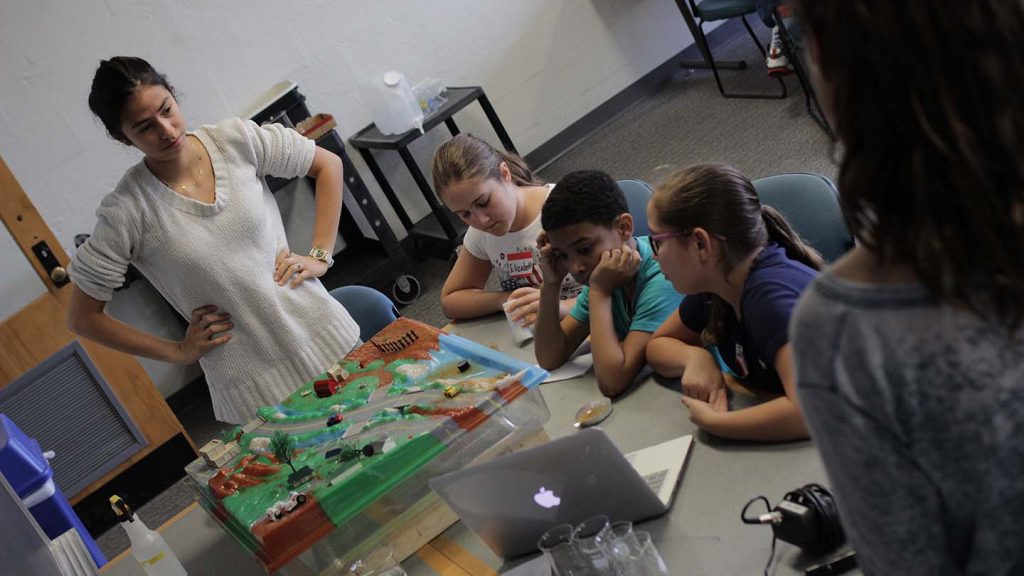 The easiest thing about the lesson plan was figuring out what we wanted to teach the students and coming up with the visual aids. The hardest aspect of the project was determining the terminology and life examples that could best represent our lesson as well teach the students. We wanted the students to have fun while visiting and talking to us, but we also wanted them to learn. This day taught me the importance of sharing information with the surrounding communities. There are people in our community who are not aware of the environmental dangers we are facing.
The easiest thing about the lesson plan was figuring out what we wanted to teach the students and coming up with the visual aids. The hardest aspect of the project was determining the terminology and life examples that could best represent our lesson as well teach the students. We wanted the students to have fun while visiting and talking to us, but we also wanted them to learn. This day taught me the importance of sharing information with the surrounding communities. There are people in our community who are not aware of the environmental dangers we are facing.
–Liszeth Rodriguez ’21
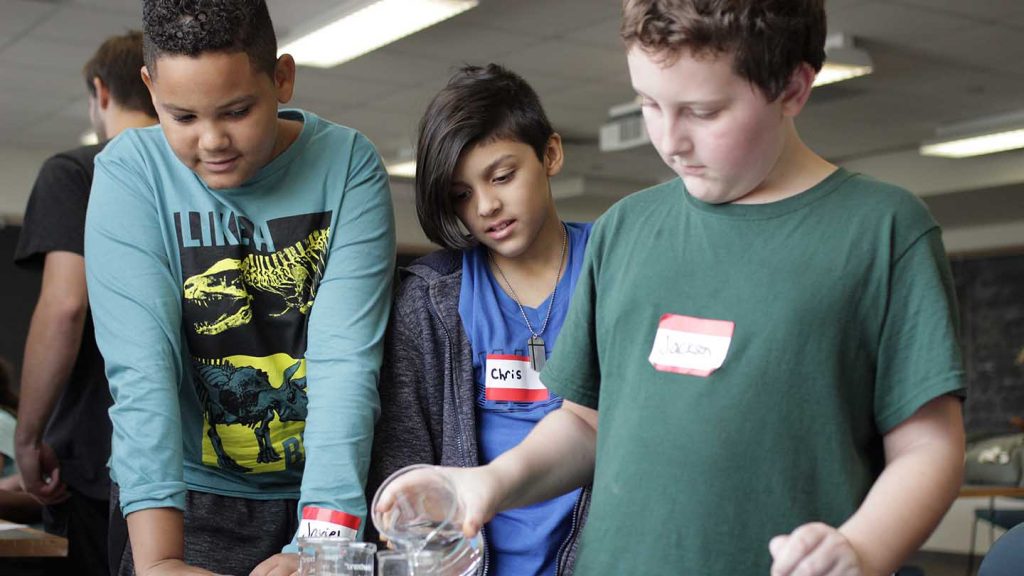 I really enjoyed getting to know these students during our lesson. To see the excitement and engagement they had to learn something new was really promising. It also gets students excited about the STEM field and provides them with a potential path their life could take. Plus, water is something we are constantly surrounded by, so it is good to know where it comes from, how it can become, and how it can be treated.
I really enjoyed getting to know these students during our lesson. To see the excitement and engagement they had to learn something new was really promising. It also gets students excited about the STEM field and provides them with a potential path their life could take. Plus, water is something we are constantly surrounded by, so it is good to know where it comes from, how it can become, and how it can be treated.
–Lisa Sholtz ’21
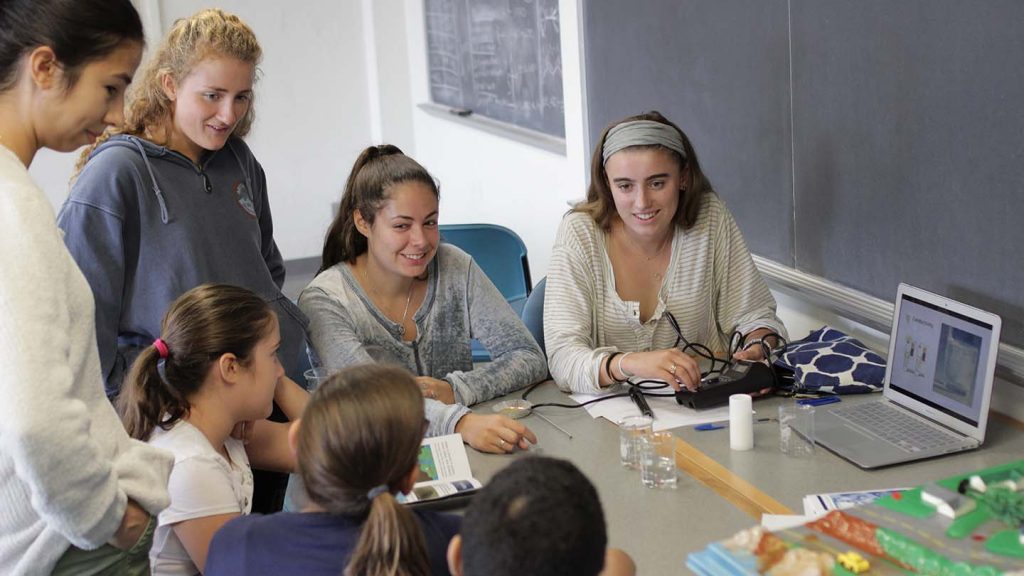 The Cheston project helped show me how much of an influence I had on these children. Before the lesson many of them said that they wanted to be star athletes or actors, but at the end two of my group members said they wanted to go into the sciences and help people, which was a heartwarming thing to hear from a fourth-grader.
The Cheston project helped show me how much of an influence I had on these children. Before the lesson many of them said that they wanted to be star athletes or actors, but at the end two of my group members said they wanted to go into the sciences and help people, which was a heartwarming thing to hear from a fourth-grader.
–Elizabeth Fromhien ’21